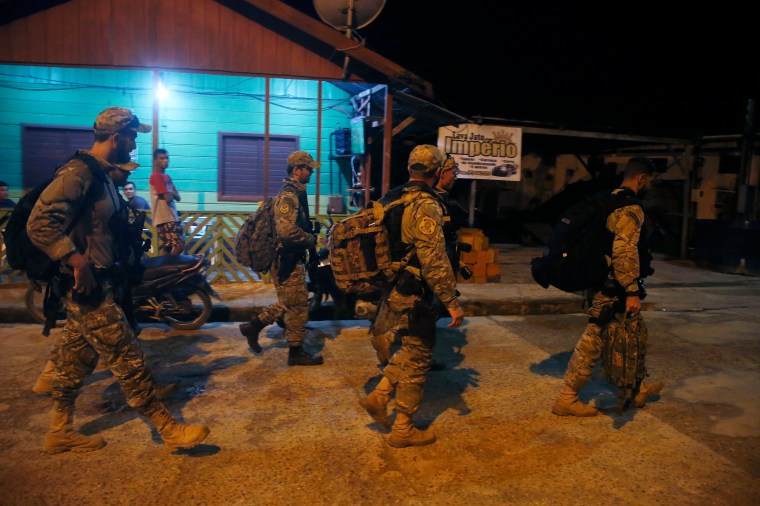Rio de Janeiro, June 9, 2022 – Brazilian authorities must expand their efforts to search for missing journalist Dom Phillips and Indigenous expert Bruno Pereira, the Committee to Protect Journalists said Thursday.
Phillips and Pereira went missing the morning of Sunday, June 5.
Phillips, a freelance British journalist based in Brazil who has reported for The Guardian, Financial Times, Washington Post and New York Times, has covered illegal mining, deforestation, and human rights issues in the Amazon. He and Pereira were on a reporting trip for a book Phillips is writing in the Indigenous territory of the Javari Valley, in Amazonas state near the Peruvian border, when they went missing.
On Tuesday, the Javari Valley Indigenous People Union (UNIVAJA) and the Observatory of Uncontacted Indigenous People (OPI) said in a joint statement that authorities had not yet established a task force to search for the pair, and that very few personnel had been deployed to the area.
In a statement published Wednesday, The Guardian called the government’s response “at best sluggish and underwhelming” and said “too much time has been lost already.”
Also Wednesday, the First Federal Civil Court in Amazonas ordered the federal government to increase the personnel and vehicles, boats, helicopters, used in the searches for Phillips and Pereira, according to multiple news reports.
“Brazilian authorities must redouble their efforts to find journalist Dom Phillips and Indigenous expert Bruno Pereira. Police must ensure their investigation is transparent, and that all leads are pursued to hold those responsible for their disappearance to account,” said Carlos Martinez de la Serna, CPJ’s program director, in New York. “There is a clear pattern of threats and attacks on journalists and activists in Brazil who document environmental issues and violations of Indigenous peoples’ rights, and authorities have yet to put in place effective mechanisms for their protection.”
In a statement emailed to CPJ, the Brazilian Ministry of Defense said that it had “immediately employed all means necessary for the searches,” including boats, a helicopter, and military personnel.
The day before they went missing, a group of fishermen working illegally in the area threatened Phillips and Pereira, along with members of the UNIVAJA while they were traveling together, according to news reports, which said the men pulled up their boat nearby and brandished guns at them.
On Wednesday, police arrested one of the men who had flashed their weapons, those reports said, adding that police had also seized a boat and illegal ammunition from him. An activist with UNIVAJA identified the suspect as the same man who had previously fired at UNIVAJA patrol boats, according to those reports.
According to the Brazilian newspaper O Globo, police allege that the suspect and four other men followed Phillips and Pereira after they left the São Rafael community early Sunday morning. A witness quoted in that report said she saw the suspect loading a shotgun and packing up ammunition on Sunday morning.
However, in a press conference Wednesday, Amazonas Public Security Secretary-General Carlos Alberto Mansour said the suspect was arrested for possessing drugs and illegal ammunition, but authorities “had not yet made the connection between him and the disappearance.”
He added that authorities were investigating the case as a disappearance, saying they did not “have strong indication of a crime yet,” and had interviewed five witnesses.
During the press conference, Mansour said authorities were “hopeful to find [Phillips and Pereira] still alive,” and he and Federal Police Chief Eduardo Fontes defended the government’s response, listing the personnel and vehicles deployed for the search.
OPI Executive Coordinator Fabio Ribeiro told CPJ via messaging app that the Javari Valley is “the second largest indigenous territory in Brazil and where there are records of logging, clandestine fishing, illegal mining.”
He said the situation “has worsened in the past years, especially with the dismantling of the public policies for the protection of indigenous people.”
When CPJ emailed President Jair Bolsonaro’s office for comment, a representative forwarded that request to the Indigenous National Foundation governmental body and the federal police; the foundation did not immediately respond, and the federal police referred CPJ to the Wednesday press conference.
